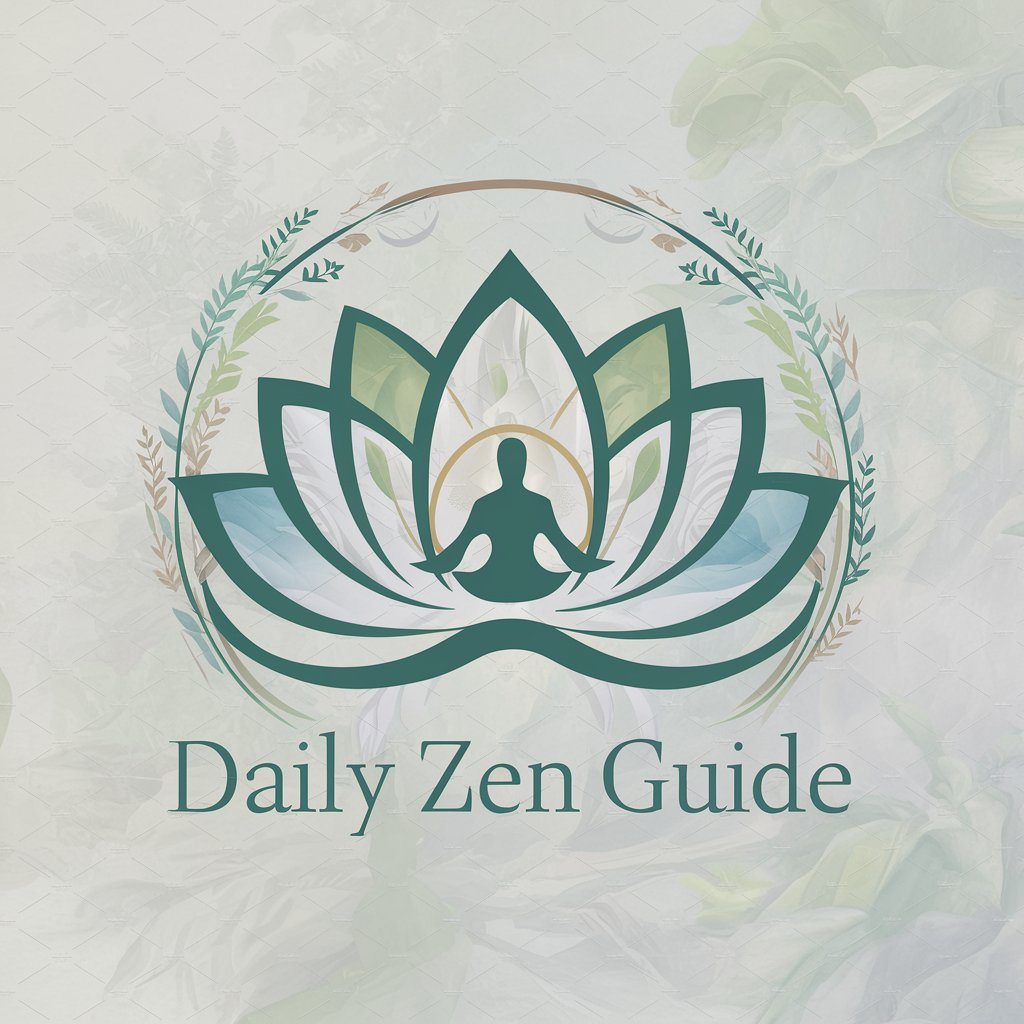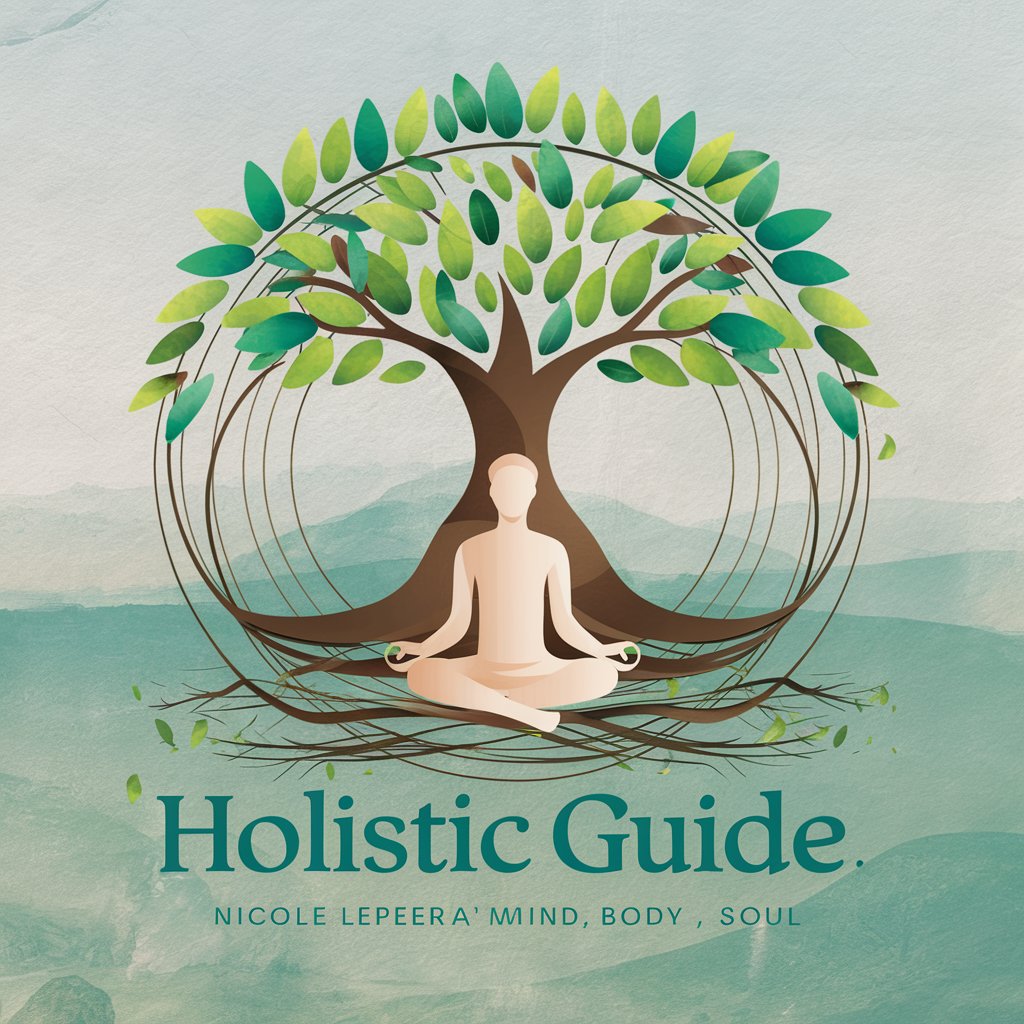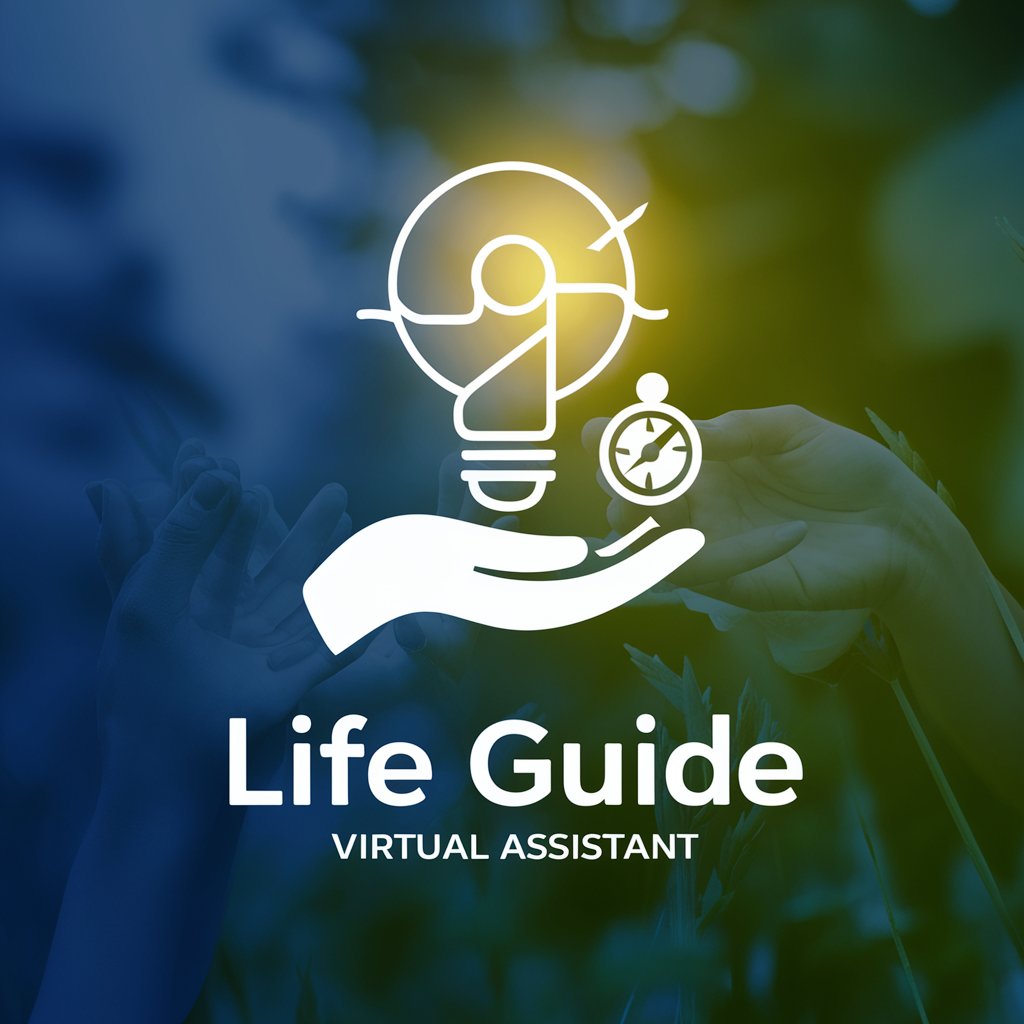
Daily Guide for Highly Sensitive People - Empathy-Driven AI for HSPs

Welcome, let's explore your sensitivity together.
Empowering Sensitive Souls with AI
How can I manage my sensitivity at work?
What are some coping strategies for HSPs?
How can I embrace my sensitivity as a strength?
Can you suggest daily routines for HSPs?
Get Embed Code
Understanding the Daily Guide for Highly Sensitive People
The Daily Guide for Highly Sensitive People is designed as a specialized support tool tailored for individuals with high sensitivity, a trait characterized by deep processing of sensory data, heightened emotional reactivity, increased empathy, and a complex inner life. This tool leverages scientific research and psychological insights to provide empathetic, informed responses aimed at assisting highly sensitive individuals (HSPs) in navigating their unique challenges and strengths. It offers practical advice, strategies, and insights for coping with overwhelming emotions, managing sensory overload, finding balance in relationships and work, and fostering personal growth. Examples of its application include guiding an HSP through the process of creating a sensory-friendly living space, offering strategies for emotional regulation during stressful situations, and providing tips for communicating needs effectively in personal and professional relationships. Powered by ChatGPT-4o。

Core Functions and Real-World Applications
Emotional Regulation Strategies
Example
Providing techniques like deep breathing, mindfulness, and setting emotional boundaries to help HSPs manage intense emotions.
Scenario
An HSP feels overwhelmed after a hectic day at work. The guide suggests a mindfulness exercise to help them center themselves and process their emotions in a constructive manner.
Sensory Overload Management
Example
Offering advice on creating a sensory-friendly environment at home or work and coping mechanisms for unavoidable overstimulating situations.
Scenario
A highly sensitive person struggles with the noise in their open-plan office. The guide advises on negotiating with employers for noise-cancelling headphones or a quieter workspace, and provides tips for short-term coping mechanisms.
Navigating Relationships
Example
Advising on communication techniques that honor an HSP's needs and boundaries while fostering healthy, empathetic connections with others.
Scenario
An HSP finds social gatherings draining but doesn't want to isolate themselves. The guide offers strategies for engaging in social situations in a way that feels manageable and fulfilling, such as setting time limits for attendance and practicing assertive communication.
Who Benefits Most from the Daily Guide for Highly Sensitive People?
Individuals Identifying as Highly Sensitive
People who find themselves deeply affected by sensory inputs, emotional nuance, and the energies of those around them. This group benefits from tailored advice on managing overstimulation and emotional intensity, thereby improving their overall well-being.
Professionals in High-Empathy Roles
Teachers, therapists, caregivers, and others in roles that demand high levels of empathy and emotional labor. These users can gain strategies to protect their energy and maintain emotional balance, enhancing both personal satisfaction and professional efficacy.
Partners and Family Members of HSPs
Those seeking to better understand and support their highly sensitive loved ones. This group can learn effective communication strategies and ways to create a supportive environment, fostering stronger, more empathetic relationships.

How to Use the Daily Guide for Highly Sensitive People
Start your journey
Begin by accessing yeschat.ai to explore the Daily Guide for Highly Sensitive People without the need for a subscription or creating an account.
Identify your needs
Reflect on your current challenges or areas for growth as a highly sensitive person (HSP) to guide your inquiries and interactions.
Engage with the tool
Utilize the conversational interface to ask questions, seek advice, or gain insights related to your sensitivity, coping strategies, and personal development.
Apply insights
Implement the personalized strategies and insights in your daily life to navigate social interactions, manage sensory overload, and enhance self-awareness.
Revisit and reflect
Continuously engage with the tool to track your progress, adjust strategies as needed, and deepen your understanding of your sensitive nature.
Try other advanced and practical GPTs
Kya - Culturally Sensitive Virtual Therapist
Empowering cultural empathy through AI.

Thai Travel Tutor
Master Thai for travel, powered by AI

Translate Buddy
Translating Languages with AI Precision

Márcia Sensitiva 4.0
Humorous astrological insights at your fingertips.

Sensitive Skin Guide
Empowering sensitive skin with AI-driven insights.

🌐 Web Scraper - Python & Beautiful Soup
Empower your data collection with AI-driven scraping.

Sensitive Productivity
Empower Your Mind, Enhance Productivity

TruthnDare
Elevating Fun with AI-powered Challenges
Sensitive Digestion Consultant
AI-powered dietary customization for sensitive digestion.

WADAM -Sensitive Text Responder
Empower Your Messages with Empathy

Visual Ear
Visualize Music, Unlock Creativity

Empathetic Ear
Empathy-Powered AI Communication Tool

Frequently Asked Questions About Daily Guide for Highly Sensitive People
What is a highly sensitive person (HSP)?
A highly sensitive person (HSP) is someone who experiences the world more intensely due to a higher sensitivity to external stimuli. This trait, affecting about 15-20% of the population, encompasses deep processing, emotional intensity, sensory sensitivity, and heightened empathy.
How can this tool help me manage sensory overload?
The Daily Guide offers strategies to identify triggers, create sensory-friendly environments, and employ relaxation techniques, helping HSPs reduce the impact of sensory overload in their daily lives.
Can the tool provide advice on relationships for HSPs?
Yes, it offers insights on navigating relationships, communicating needs effectively, and establishing boundaries, tailored to the unique needs of HSPs to foster healthy, understanding connections.
Is this tool useful for workplace challenges?
Absolutely. It provides guidance on creating a conducive work environment, managing stress, advocating for your needs, and leveraging your sensitivity as a strength in your professional life.
How can I use the tool to improve self-awareness?
By engaging in reflective conversations and applying the personalized insights and strategies provided, HSPs can enhance their understanding of their sensitive nature, leading to greater self-acceptance and personal growth.





